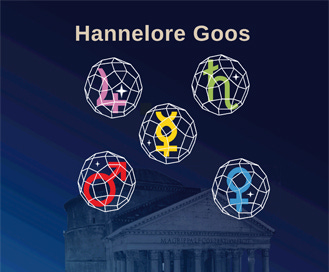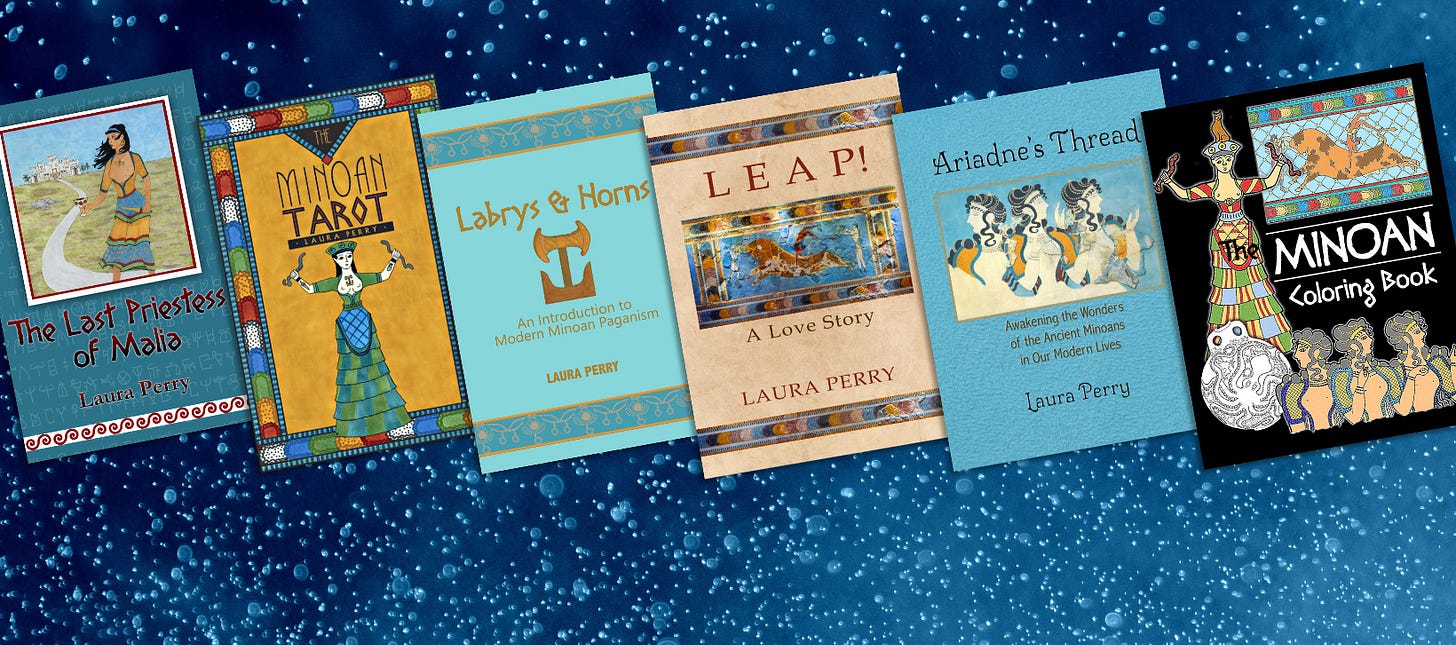I aim to review at least one book a month on magical, pagan, and polytheist subjects, both fiction and non-fiction. You can find all my book reviews here.
This is a unique book, one that has added some meaningful new insights into astrology for me. I’m not a professional astrologer, but I’ve been “doing astrology” since the late 1970s, when I learned to draw a chart with paper, pencil, a calculator, and a printed ephemeris. The Dark Ages! 😂 So I do know my way around astrology, or so I thought. I kept my chart at hand while I read, and what I read added new meaning for me.
It hadn’t occurred to me until I read Divine Messengers, but even though we refer to the planets by deity names from Roman mythology, the interpretation of them in modern astrology is based almost exclusively on Greek mythology, with Hellenic deities that are presumed to correspond to the Roman ones.
Here’s the thing: As the author notes, astrology is about meaning more than just straight information. So considering the Roman deities associated with the planets adds another layer of meaning.
Goos provides a short background history of astrology, from ancient Mesopotamia forward, as the starting point for this exploration. Then the book works its way methodically through the planets one at a time, from Mercury outward to Saturn, delving into the Roman deity associations with each one. The “modern” planets beyond Saturn are not discussed in any depth, though the author does mention them occasionally in the context of the discussion of the other planets.
I was already familiar with the basics of Roman mythology before I read this book, but I learned a great deal more about both the deities and the institution of Roman religion as I read. The author includes the background of how each deity came to be a part of the Roman pantheon, since many different tribes and groups of people made up the collective Roman culture, which was also subject to outside influences (such as, ironically for the subject of this book, Greek mythology from the people of Magna Graecia in southern Italy).
As I read, I was surprised to discover how little we really know about Roman mythology — mostly just listings of rituals and other sacred observances from Roman calendars. We don’t have anything like the huge corpus of myths that have come down to us from the Greeks. And interestingly, because of the influence of Magna Graecia, Roman writers tangled up their culture’s mythos quite a bit with the Hellenic myths they encountered.
The discussion of the planets and their mythic meanings is based in the Roman era, the few centuries either side of the turn of the eras. But the author also points out that modern culture has vastly different attitudes about many of the subjects that astrology addresses, compared to the Romans of 2000-plus years ago. So the interpretations of the planets must necessarily be viewed through that lens as well.
A favorite bit: I found the discussion of Venus’s dichotomy as the morning star ruling Taurus and the evening star ruling Libra to be especially interesting, given that some ancient cultures viewed these two aspects of Venus as two separate, distinct “stars.”
This is the English translation, by the author, of a book originally published in German. As such, there are a few places where the language is a little stilted. But I had no trouble understanding any of it, and I applaud the author for braving a translation — English isn’t the world’s easiest language, and I say that as a native speaker. And I’m glad to have this resource available in English.
Ultimately, this book has given me an awful lot to ponder in terms of the meaning and even the structure of astrological chart interpretation. I’ll probably re-read the book and take more notes as I go.
If you have an interest in astrology and/or classical mythology, I think you’ll find Divine Messengers to be a fascinating read.
The book is available at the following online outlets:
You can find all of Hannelore Goos’s books — in English, Dutch, and German — here. Buying directly from the author’s site will net you a signed copy (yay!). But if you live far from Germany, the postage may cost you more than the book itself, in which case you might want to try one of the online bookstores listed above instead.
My Substack is free, but I appreciate your support for my work by liking, commenting, and sharing these posts and by purchasing my creations. You can find my books here and my art here and here.
About Laura Perry
I'm the founder and Temple Mom of Ariadne's Tribe, a worldwide inclusive Minoan spiritual tradition. I'm also an author, artist, and creator who works magic with words, paint, ink, music, textiles, and herbs. My spiritual practice includes spirit work and herbalism through the lens of lifelong animism. I write Pagan / polytheist / magical non-fiction and fiction across several different subjects and genres. My Minoan entry in the Moon Books Pantheons series is now available for pre-order and will be released on 26 August 2025. While that process percolates along, I’m working on an illustrated book of modern Minoan myths. I’m also an avid herb and vegetable gardener and living history demonstrator.







This sounds interesting! Thank you for bringing it to my/our attention!
That's very interesting, thank you. I'll try to get the German version.